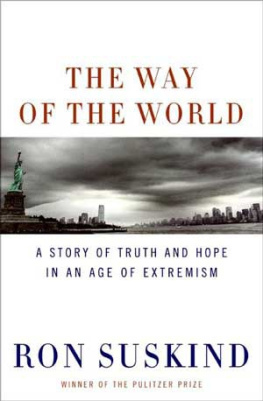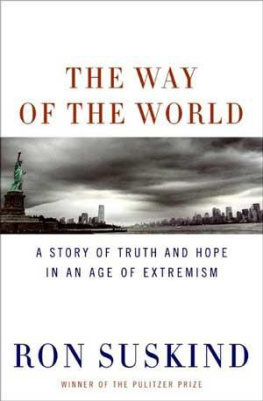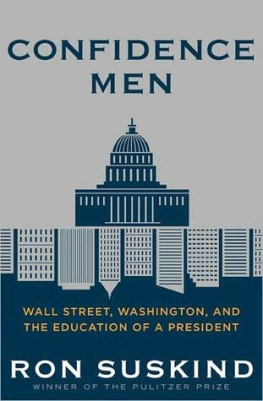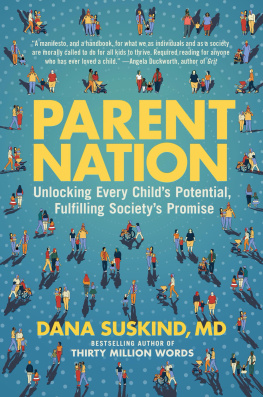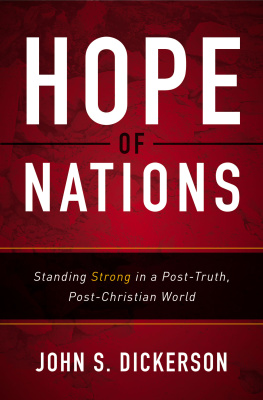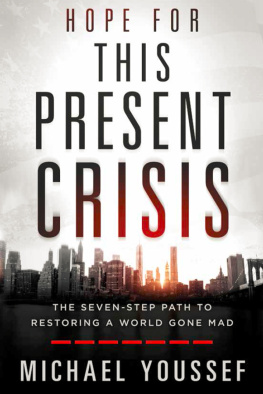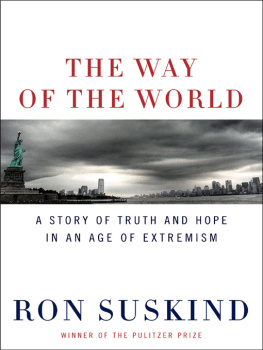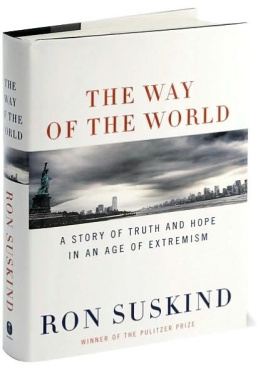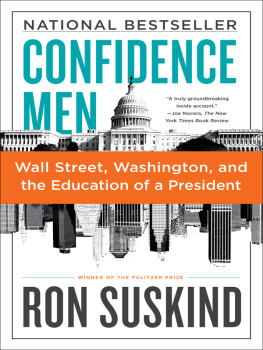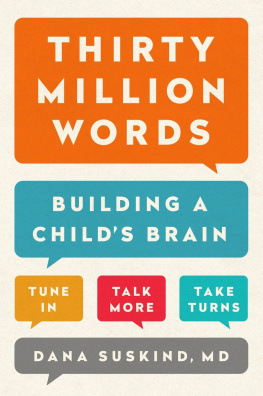
The Way of the World
A Story of Truth and Hope in an Age of Extremism
Ron Suskind

To Cornelia, who inspires hope
As a general rule, people, even the wicked, are much more nave and simple-hearted than we suppose. And we ourselves are, too.
Fyodor Dostoyevsky, The Brothers Karamazov
Contents
F ROM THE DAWN OF TIME, human beings have been attentive to signs of distinctionthe approach of a tribe with a different manner or dress, posture or skin color. The swift sizing-up of friend or foe, and acting upon itupon suspicionwas often a matter of survival. Those faculties became finely tuned over thousands of years.
Now, in a world of vivid, colliding images and technologys bequest of awesomely powerful weapons, we struggle to leap forward, to reshape instinct enough to reach across the divides of us and them, peak and valley. And to do it in time.
That shared effort is, at the very least, a starting point for a working definition of hearts and minds struggle, that smooth, slippery phrase on the lips of people across the world. Its definitions are often self-interested and oddly narrow, but they nearly always rest on a fundamental two-part question: Can disparate people ever truly understand one another, and is such understanding necessary for them to coexist? Theres considerable dispute over the matter. Some knowledgeable observers say that bringing diverse peoples together mostly serves to exacerbate distinctions and fuel divisiveness, something we can little afford in an era of such unleashed destructive capability. They point to countless bitter conflicts along borders, and within them, and recommend tall fences. Others contend that the world is steadily becoming borderless and blended, and that such conflictthe friction caused by the conjunction of oppositesmust be endured, and mastered, on the way to discovering shared interest and common purpose.
One rare area of agreement? That the answerswhether proof of insurmountable divides or of indelible human bondsare found by walking in the shoes of the other.
The other ? Could be anyone, really, from the person who seems to hail from a distant planetthe traditional other of a different race or status, ethnicity or historyto someone just like you but whos seen things you havent, illuminating things that alter ones path in the world. All of this, of course, is ancient advice; the shoes are a favored metaphor that underpins everything from love thy neighbor as thyself to know thine enemy.
The key is picking some good shoes. And there are some, right now, in the summer of 2006, walking through America. One pair belongs to Rolf Mowatt-Larssen. Hes the man who tries to figure out whether terrorists are about to wrap, or already have wrapped, their hands around this eras Promethean fireuranium or plutoniumin sufficient quantity to make a nuclear weapon. Hes been the governments leading man on this twisting, harrowing task since 9/11, first at CIA and just recently at the Department of Energy. Thats means hes spent nearly five years regularly briefing the president and the vice president and kicking down doors here and abroad to ask unsettling questions. Either hes the most important man in the U.S. government or hes Chicken Little.
Hes not sure himself, which is why his shoes are good for walking. You dont know where theyll lead. Neither does he. When he finds out, well all find outand hopefully itll be before theres a catastrophic event.
Right now his feet are up. Its late on Friday afternoon, July 14. Hes reclining at his office in the basement of the Department of Energy, where hes the head of intelligencea division that will grow from 100 to 350 by years endglancing over the dispatches of the presidents meeting with Vladimir Putin. The Russian president, proudly hosting the G8 conference in Russia for the first time, wanted to start the gathering on a cooperative note. This was accomplished by signing an agreement with the United States to colead a multilateral effort to combat nuclear terrorism.
Rolf had reviewed drafts of the agreement, though hes not hopeful it will do very much. There are several agreements, much like the one Bush and Putin have just signed, that have been admirable in intent but severely lacking in follow-through and execution. They depend, as with all agreements, on the enthusiasm of the signatories. If Russia and the United Statesthe old cold war combatants who brought these weapons to the worldare not working together, not much will occur. And the relationship is strained. The United States says it wants to help Russia secure its stockpiles of material. The Russians say, with a note of impatience and resentment, that they can handle their own affairs.
Rolf, who did two tours for CIA in Moscow and helped catch moles like Aldrich Ames, doesnt draw much comfort from Russias assurances. He knows too much. Know thine enemy has, of course, a modern, institutional translation. Its called intelligence. The most valuable intelligence has always been human intelligencespies, or moles, in the opponents campwhich has helped shape conflict since the Trojan War. Rolf happens to be one of the few people, anywhere, who has run operations against the great enemy of the past, the Soviet Union, and against this eras pernicious opponent, al Qaeda.
He thinks almost every day about the many lessons the United States learned in decades of recruiting and managing Russian spies, and if any of those hard-won lessons might be relevant right now.
The United States, mind you, has never been very good at espionage, and it still isnt. America has developed only three spies inside the al Qaeda terrorist network since 9/11. One, codenamed Lovebuga Kurd and an associate of Iraqs al Qaeda chief, Abu Musab al-Zarqawisigned on in 2002 and worked hard, offering contextualized intelligence worth terabytes of electronic surveillance. He left, vanished, and then returned to the fold just a few months before he was killed in early 2004. Rolf helped manage Lovebug, and he thinks often about why Lovebug came back. What was going through his head, and how do we find his successors? The world is too big, destructive materials are too widely available, and the footprint of a terror cellmaybe only a few guys in some apartmentis just too small. Without another Lovebug, several of them, telling us whats being planned, a nuclear event in a major U.S. city is not a matter of if . Its a matter of when .
If you want to walk in Rolfs shoes, youre going to hear a lot about walking in the shoes of his top-priority othernamely young Muslim men whose decisions, one by one, are driving global events. Sitting in his office, he tries to connect a few dots about what the terrorists may be planning. He flips through an array of classified dispatches of electronic intelligence. He looks over interrogation transcripts from Guantnamo Bay. He knows, more surely with each passing minute, that we are blind without moles, that al Qaeda is looking for uranium and theres plenty of it out there. With as little as thirty-five pounds, a sophisticated group could build a Hiroshima-size bomb. Wed never see it coming.
Thats why he cant sleep.
He calls his wife. Tells her hell be home late, asks what his teenage girls are up to this Saturday night, and just hearing her voicea woman, God bless her, whos traveled at his side through five foreign CIA toursreminds him of what he hopes.
He hopes hes Chicken Little.
H ALFWAY AROUND THE WORLD, George W. Bush walks to the end of the driveway of his villa and looks up at a blimp, full of electronic equipment, floating a few hundred feet overhead. Its Saturday, July 15. He stands there silently on the blacktop, waiting for Putin to pick him up in a golf cart and drive him to the days events. Both of these things irritate him. Bush doesnt like waiting and he hates when other people insist on being in the drivers seat, which is where Putin has been throughout their relationship. He knows now that it might not have been that way. He was warned, and he didnt heed the warnings. In fact, they came months before his famous meeting in June 2001 where he said he felt that he was looking into Putins soul. He had talked to Putin several times before that, even during the presidential campaign, and he felt the man was his friend. Once Bush arrived in office, various Russian experts at the NSC tried to warn otherwise. They said that Putin was a trained KGB agent, and a good one. He wants you to think hes your friend, they said. Thats his skill. Soon enough, they had a remedy. Putin was going to a meeting in Vienna in February 2001. Hed be staying in the presidential suite at the Hotel Imperial. CIA had an old listening device implanted in the wall of the suite. All they needed to do was replace the battery.
Next page
